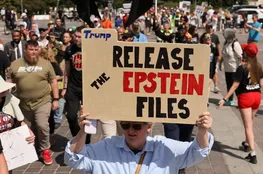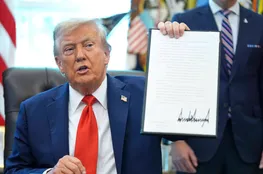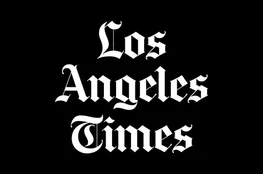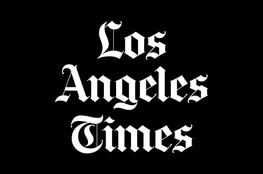Kamala Harris, a Democratic presidential candidate, has the potential to become the first Indian American president of the United States. Despite this historic possibility, recent surveys reveal a decline in her support among Indian American voters, a demographic that has traditionally favored the Democratic Party. According to a survey by the Carnegie Endowment for International Peace, Harris is projected to receive fewer votes from this community compared to Joe Biden in the 2020 election. Approximately 61% of Indian American respondents indicated they would vote for Harris, a drop of nearly 4% from 2020.
The Indian American community, with 5.2 million members and 2.6 million eligible voters, is a significant immigrant group in the U.S. This demographic's attachment to the Democratic Party has diminished, with only 47% identifying as Democrats, down from 56% in 2020. Simultaneously, there is a slight increase in their openness to voting for Republican nominee Donald Trump. Both major political parties have intensified their outreach efforts to this influential group in recent years. Besides Harris, prominent Indian American figures have emerged within the Republican Party, including Nikki Haley and Vivek Ramaswamy.
The election is expected to be closely contested, with polls indicating that Harris's lead over Trump has narrowed. Key battleground states like Pennsylvania, Georgia, and Michigan, which have substantial Indian American populations, might sway the overall outcome. Political analysts highlight the potential impact of Indian American voters in these swing states, given their higher population numbers compared to the margin of victory in past elections.
The gender-based partisan divide is another factor influencing Indian American voter preferences. Many women in the community resonate with Harris’s stance on abortion rights, whereas a growing number of men lean towards Trump's policies, such as strong border controls and favorable taxation. This gender gap is especially pronounced among younger voters, with women predominantly supporting Harris and men showing divided loyalties.
Harris’s identification more with her Black heritage than her Indian roots has also alienated some voters within the Indian American community. Figures like Tulsi Gabbard and Usha Vance have garnered more enthusiasm among these voters. Despite Harris’s historical candidacy, her moderate embrace of her Indian background may not serve as a significant electoral advantage.
Meanwhile, geopolitical issues like the conflict in Gaza have also affected voter alignment. There is growing dissatisfaction with the Democratic Party’s position on Israel, prompting some Indian Americans to reconsider their support. Among young Indian Americans, there is increasing interest in third-party candidates as a form of protest.
While Trump has attempted to win over Hindu American voters by highlighting his ties with Indian Prime Minister Narendra Modi, experts suggest that Indian Americans primarily prioritize domestic issues during elections. Concerns about economic stability, healthcare, climate change, and reproductive rights often outweigh considerations related to U.S.-India relations. This dynamic underscores the complexities of voter preferences within this vibrant and evolving community.
























